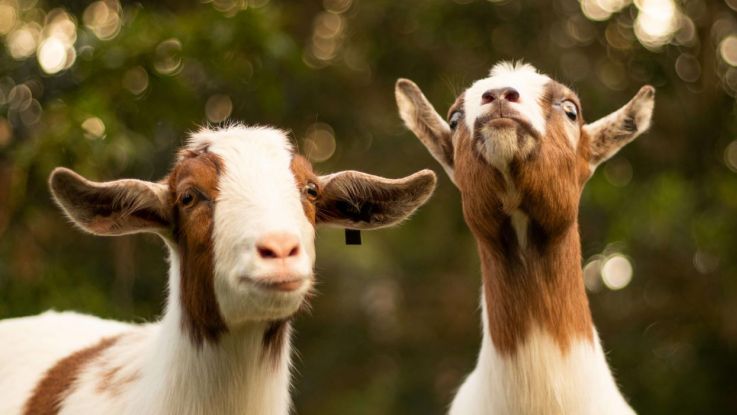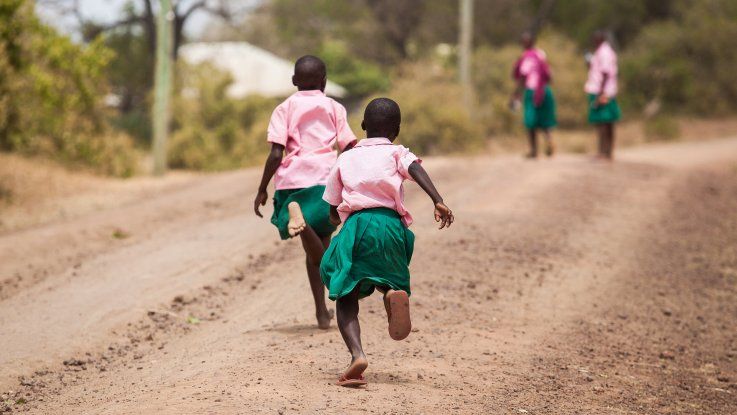Not so festive cheer: let’s talk about violence against women and girls
11 December 2020
Christmas can be a stressful occasion as it is, but with the coronavirus pandemic, it could be a doubly fraught holiday. Find out how women and girls are at risk of increased domestic violence this time of the year.

Florence is the Executive Director of the ActionAid-supported Tusitukirewamu Women’s Network in Kampala. . Photo: Esther Mbabazi/ActionAid
Amongst my loved ones and the people I regularly talk to, there is a near-universal desire for 2020 to be over. We’re so done with this year.
As we move through December, many of us look forward to mince pies, presents, and crucially some rest and respite from the difficulties that this unforgiving year has thrown our way.
I hope that we all have a merry, joyful, and restorative festive season. And yet, I know that for some of us, that’s just not a possibility.
So as much as I’d like to switch off and forget everything for a while, I know that’s a luxury that comes with privilege and freedom. So I’m asking you to stop for a few minutes, and re-commit, along with us at ActionAid, to play our part in ending violence against women and girls.
Let’s face it, some folk love Christmas, and some find it stressful at the best of times.
Lockdowns - a dangerous life sentence for women
For women in violent relationships, navigating this festive period will go way beyond deciding what gifts to give or how to celebrate with family. It will be navigating a route through tempers, taunts and violence, in the hope of coming out the other side.
Yet as demand surged, services were being cut or closed, leaving women trapped."
Statistics tell us that one in three women experience violence in our lifetimes. That’s a third of us.
Most of the violence is at the hands of a male partner or relative, someone we know and someone we perhaps love or have loved. Often, it’s someone we depend on, for financial and other support.
This year, as Covid restrictions continue across the world, ‘lockdown’ can be a life sentence.
In England, we know that two women a week are killed by a partner or ex-partner. Across the world, that figure stands at a staggering 187 murders of women every day.
UN research1 shows that calls to helplines for women experiencing violence have never been higher, increasing five-fold in some instances.
ActionAid’s own monitoring of the situation for women across the world has seen an alarming rise in cases and request for support.
- In Bangladesh, there has been a tenfold increase in sexual and domestic violence, this April to May, compared to the same period last year.
- In Gaza, we saw a 700% increase in demand for counselling this April-May, than in 2019.
- In Brazil, there was a 22% average increase in femicide across 12 states compared to last year, according to data from security agencies.
- In Nigeria, one women’s shelter reported a 700% increase in cases of violence since lockdown and ActionAid Nigeria called the increase in violence an emergency in itself.
Yet as demand surged, services were being cut or closed, leaving women trapped or forced to return to dangerous households.
Christmas during the coronavirus pandemic
The causes of violence against women and girls are well known: unequal power relations between women and men. Violence is a tool used to threaten, oppress and control women and our bodies, in a world designed and run for men.
Christmas comes at the end of a very stressful year for many – this plus the added restriction on freedom of movement, can both heighten the risk of violence."
Christmas in itself does not cause violence, but it can create the perfect storm of factors that can enable it and put women and girls at risk. This includes financial pressures, increased alcohol consumption, and increased family arguments.
This year Christmas comes at the end of a very stressful year for many – this plus the added restriction on freedom of movement, can both heighten the risk of violence, and prevent women and girls from leaving for a place of safety.
How does ActionAid tackle domestic violence?
ActionAid is committed to an end to violence against women and girls.
Our programmes around the world seek to prevent and respond to violence, and create the conditions for gender equality (a precondition for an end to violence) to thrive.
For women experiencing violence, and the women supporting them to safety, this time of year can be dangerous and relentless."
A key part of our approach is to work with the true experts - the women and girls who directly understand the problem, who are trusted by and know other women and girls in a way that others do not. These are women who are paving the way with solutions that transform lives.
In Uganda, Florence is one such expert and leads an organisation called the Tusitukirewamu Women’s Network. She joined the network when she was 18, having experienced violence in her home, and now says “Violence against women should stop with me”.
Her determination has led to a programme with seven staff and a network of 35 volunteers, who have close connections in local communities and provide support and referrals to women experiencing violence, as well as training to improve livelihoods for survivors rebuilding their lives.
This support to women survivors is crucial, but we know that violence will only end when it is prevented from happening in the first place. Tusitukirewamu also works on the root causes of violence – Florence’s team do preventative outreach work, increasing awareness of women’s rights, and running trainings with men to grow a network of male champions they call ‘model men’, who work with other men to stop violence.
Florence’s work doesn’t stop for Christmas.
In fact for women experiencing violence, and the women supporting them to safety, this time of year can be dangerous and relentless.
This year I’m standing with women around the world who are working to end violence. Will you stand with women too? Just £3 a month for a year could provide meals for a fortnight for someone who has escaped abuse. For those of you who have already donated or pledged your support - thank you for all that you do.
Coronavirus pandemic: a domestic violence support guide
If you are experiencing violence it is not your fault, and you are not responsible for stopping the violence - only the perpetrator can do that.
There is however support available to you, and there are small actions you can take to increase your safety. Read our guide for steps that might be helpful in developing your own safety plan.
Please also contact support organisations in your community, and/or the emergency services where needed or call the National Domestic Abuse Helpline on 0808 2000 247.
How you can help
With support from ActionAid, women like Florence have been at the forefront of the Covid-19 response in many of the world’s poorest countries.
We must stand with women to support those who have survived domestic violence and those that are helping them get back on their feet.
Your gift of just £7 a month could help fund a women’s shelter providing safe, temporary accommodation for survivors or violence. Please donate now.
Footnotes
- 1https://www.unwomen.org/en/digital-library/publications/2020/07/a-75-274-sg-report-ending-violence-against-women-and-girls



